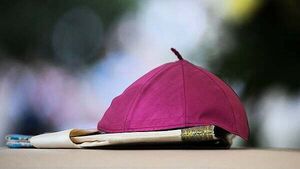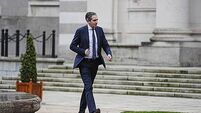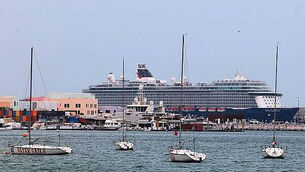'Terrible mistake' if disgraced former bishop is 'uniquely scapegoated' over Ferns Report

Vivienne Clarke
It would be a “terrible mistake” if Bishop Brendan Comiskey was “uniquely scapegoated” for his legacy with the Ferns Report, the founder of support organisation One in Four has said.
“The simple fact is Brendan Comiskey didn’t fail to manage reports of clerical child sexual abuse in the Diocese of Ferns. Rather, he managed them pretty much fully in line with the approach and the rules dictated by the Vatican and laid down in canon law,” Colm O’Gorman told RTÉ radio’s Morning Ireland.
Mr Comiskey, who resigned following claims he failed to deal properly with child sexual abuse allegations, died on Monday aged 89.
He stood down as Bishop of Ferns in 2002 after the BBC aired a documentary called Suing the Pope, which uncovered more than 100 allegations of abuse by 21 priests over more than three decades.
The documentary alleged Mr Comiskey had failed to protect children from paedophile priests and had participated in the cover-up of allegations of child sexual abuse.
The allegations were followed by an inquiry into child sexual abuse. The Ferns Report, published by the government in 2005, shed more light on a catalogue of abuse going back to the tenure of Comiskey’s predecessor, Donal Herlihy, as Bishop of Ferns, and was strongly critical of Comiskey.
“The cover-up of abuse in Ferns wasn’t unique to that diocese or any other dioceses on the island of Ireland. It was a cover-up that extended across the Catholic world as we now know and has been proven time and time again in repeated inquiries across the world and through media investigations like some that I’ve carried out myself,” said O’Gorman.
“It is directed by the Vatican from the top so it’s really important that his legacy, if people want to talk about it in terms of abuse, is recognised and understood. He was responsible for what he did. He was responsible for complying with that approach and with those instructions. But it’s bigger than that one man. He wasn’t unique in that regard.”
Mr O’Gorman said that Comiskey was responsible for the decisions that he made, his compliance with and his enforcement of the Vatican rules on absolute secrecy in the cases of child sexual abuse, in the cover-up of those crimes, in the pattern of moving priests from parish to parish, even after they had been known to abuse children.
“He was responsible for his actions, for his decisions, for his failure to do what was obviously and patently right. But in doing so, he was part of a collective responsibility and the part of all bishops who were part of that cover-up. But the ultimate responsibility for it rests with the Vatican, with the previous popes across, actually, many, many decades, who enforced and put in place these rules that required the cover-ups.”
Mr O’Gorman said he had never actually met or spoken with Bishop Comiskey and had always been open to having a conversation with anybody. “But he never reached out.”
“He often said that he wanted to and that he would, but he never followed through when I attempted to make contact with him, for whatever reason. Obviously he was dealing with his own demons as we all know.”




